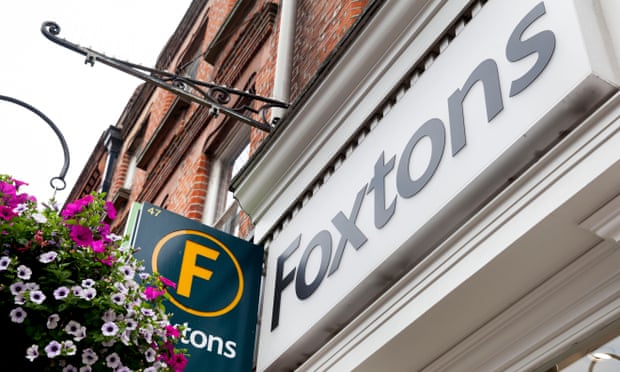Foxtons is facing a shareholder backlash over a decision to award a near-£1m bonus to its chief executive while refusing to pay back millions of pounds in taxpayer-funded government support to weather the Covid-19 pandemic.
The London estate agent, which has received almost £7m in government furlough money for staff and business rates relief, has also continued to spend freely to build its business.
On Wednesday the company revealed that it had made a £3m investment in Boomin, the property site set up by the co-founder of Purplebricks Michael Bruce, weeks after spending £14m to buy the rival London agency Douglas & Gordon. In November, Foxtons paid £2.2m for Aston Rowe.
Foxtons has said that Nicholas Budden, the chief executive, is to receive an annual bonus of £389,300 in 2020 to “reward hard work” in a year the business did “well in very tough circumstances”. In addition, Budden has also been awarded shares worth £569,000 under a long-term incentive scheme, which will vest in five years.
Two of the world’s largest and most influential investor advisory services, Glass Lewis and ISS, criticised Budden’s remuneration in a year when Foxtons’ share price fell by about a third and it took about £4.4m in furlough money and £2.5m in business rates relief.
“Some investors may question the appropriateness of awarding bonus payments to the executive directors before paying back the government support received,” ISS said in a note to investors. “There is a material disconnect between bonus outcomes and company performance.”
Glass Lewis said it was “concerned” about any payouts under annual bonus schemes “given the shareholder and wider workforce experience” last year.
“In our view, there is no reason as to why the company could not reduce the bonus to nil, a common practice amongst the company’s FTSE-listed peers,” Glass Lewis said.
Rivals including Winkworth repaid their furlough money after seeing a surge in property sales, thanks to the government’s stamp duty holiday.
“Although the company has no legal requirement to repay this government money, there are reputation[al] considerations to take into account,” ISS said. “Many UK companies have paid back such support before considering the payment of bonuses to executives.”
The two investor advisory firms have recommended that shareholders vote against Foxtons’ pay plan at its annual meeting on 22 April.
Foxtons, which last April raised £21m from investors to “support the business though our reasonable worst-case scenario”, has also experienced a revival in its fortunes.
On Wednesday the company said that revenues surged 24% year on year to £28.5m in the first quarter of 2021. Letting revenues rose 6% to £14.8m, although in London they fell 12%, with Foxtons saying this drop was offset by increased volume.
“Our executive directors’ bonuses were cut by half compared to their entitlement, and the chief executive’s overall cash compensation was down more than a quarter compared to the year before,” a spokesperson for Foxtons said.
“The vast majority of reward in the property sector is dependent on performance, and we believe it is right to reward hard work and results in a year when the business did well in very tough circumstances. Our aim has been to strike the right balance in recognising the situation while also acting in the best long-term interests of all our stakeholders.”






